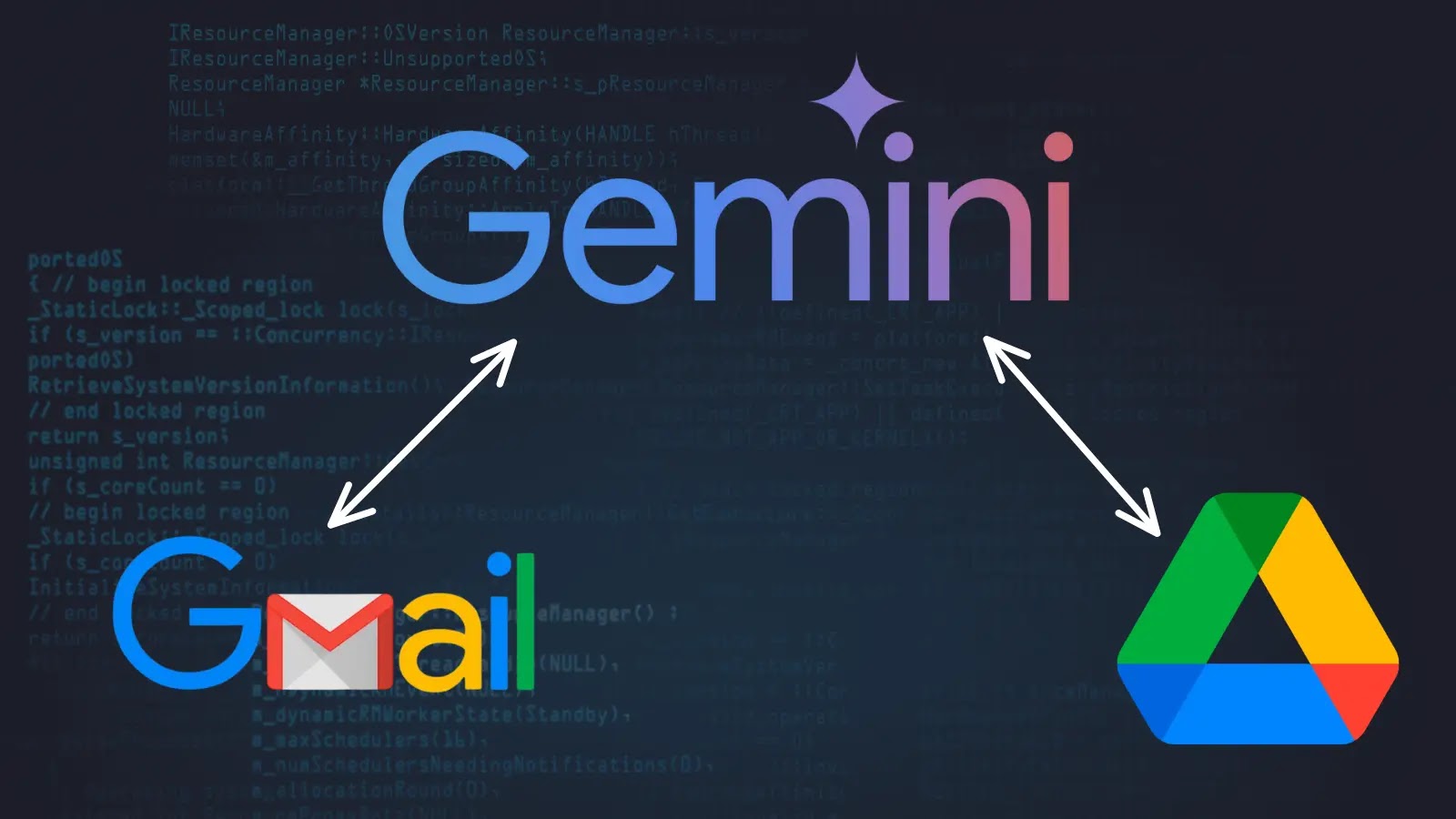
Google’s Gemini Deep Research Tool Gains Access to Gmail, Chat, and Drive Data
The landscape of digital productivity is undergoing a significant transformation. Google has just announced a pivotal update to its Gemini AI model, extending its Deep Research feature unprecedented access to users’ personal data across Gmail, Google Drive, and Google Chat. This development, previously hinted at but now officially rolled out, allows Gemini to integrate emails, documents, spreadsheets, slides, PDFs, and chat histories directly into its comprehensive research reports. While this promises a new era of streamlined collaboration and expedited insights, it simultaneously raises critical questions for cybersecurity professionals and privacy advocates alike.
Gemini’s Expanded Reach: Unpacking the Deep Research Feature
Google’s Gemini Deep Research tool is designed to revolutionize how information is gathered and synthesized. Traditionally, AI-powered research has relied heavily on publicly available web content. With this update, Gemini transcends those boundaries, gaining the ability to pull directly from a user’s digital ecosystem. Imagine an AI assistant that can not only scour the web for market trends but also analyze internal meeting notes stored in Drive, review relevant email threads in Gmail, and parse project discussions within Google Chat – all to construct a highly personalized and context-rich research report.
This integration facilitates a more holistic understanding of a topic by bridging external and internal data sources. For professionals and teams, this could mean significantly reduced time spent on data aggregation and a substantial boost in the depth and relevance of generated insights. The promise is clear: faster, more powerful research at your fingertips.
Enhanced Productivity vs. Heightened Privacy Concerns
The immediate benefit for productivity is undeniable. For legal teams, Gemini could synthesize case precedents from Drive documents and relevant communications from Gmail. Marketing departments could analyze customer feedback from Chat alongside market research data. The potential for innovation and efficiency is vast. However, this level of access fundamentally alters the data privacy paradigm for Google users.
Granting an AI model direct access to such a wide array of personal and professional communications introduces significant security and privacy considerations. While Google asserts that robust security measures are in place, the sheer volume and sensitivity of the data now accessible to Gemini Deep Research necessitate a thorough understanding of its implications. Users must be aware of how their data is being processed, the extent of AI’s analytical capabilities, and the safeguards implemented to prevent misuse or unauthorized access. The core tension lies in balancing the benefits of advanced AI-driven insights with the imperative to protect sensitive personal and corporate information.
Understanding Google’s Data Handling and Security Posture
Google’s official stance emphasizes user control and stringent privacy protocols. Users are expected to explicitly grant permission for Gemini to access these services. However, the exact granular controls and audit mechanisms available to users remain a crucial detail. The question isn’t just about *if* the AI has access, but *how* that access is managed, what data points are extracted, and whether users can easily verify or revoke specific permissions.
Cybersecurity professionals will be scrutinizing Google’s implementation of data isolation, encryption, and access controls within the Gemini framework. Any misstep here could have profound consequences, ranging from accidental data exposure to more sophisticated attacks targeting the AI’s data processing pipeline. It’s imperative that Google provides transparent documentation on its security architecture for this expanded feature to build and maintain user trust.
Remediation Actions for Users and Organizations
In light of Gemini’s expanded capabilities, users and organizations must take proactive steps to manage their digital environments and mitigate potential risks:
- Review and Understand Permissions: Before enabling Gemini Deep Research, thoroughly review the permissions it requests. Understand precisely what data sources it intends to access and for what purposes.
- Granular Control Assessment: If available, utilize granular permission settings to restrict Gemini’s access only to essential data. Avoid blanket permissions.
- Data Minimization: Practice data minimization principles across Gmail, Drive, and Chat. Regularly clean out unnecessary or sensitive information that is no longer required.
- Strong Access Controls: Reinforce strong authentication methods, including multi-factor authentication (MFA), on all Google accounts. This is your primary defense against unauthorized account access.
- Organizational Policies: Companies should update their acceptable use policies and data governance frameworks to explicitly address AI tools and their access to corporate data.
- Employee Training: Educate employees on the implications of AI integration, emphasizing the importance of securing their Google accounts and understanding data sharing practices.
- Stay Informed: Keep abreast of Google’s security updates and privacy policy changes related to Gemini and its associated services.
The Future of AI and Personal Data
The integration of Gemini Deep Research with Gmail, Drive, and Chat marks a significant milestone in the evolution of AI-driven productivity. While promising unprecedented efficiency and insight, it equally ushers in a new era of data privacy challenges. For cybersecurity professionals, the focus shifts to ensuring that the convenience of AI does not come at the expense of robust data protection. It is a delicate balance that requires continuous vigilance, transparent practices from service providers, and proactive security measures from users and organizations.





